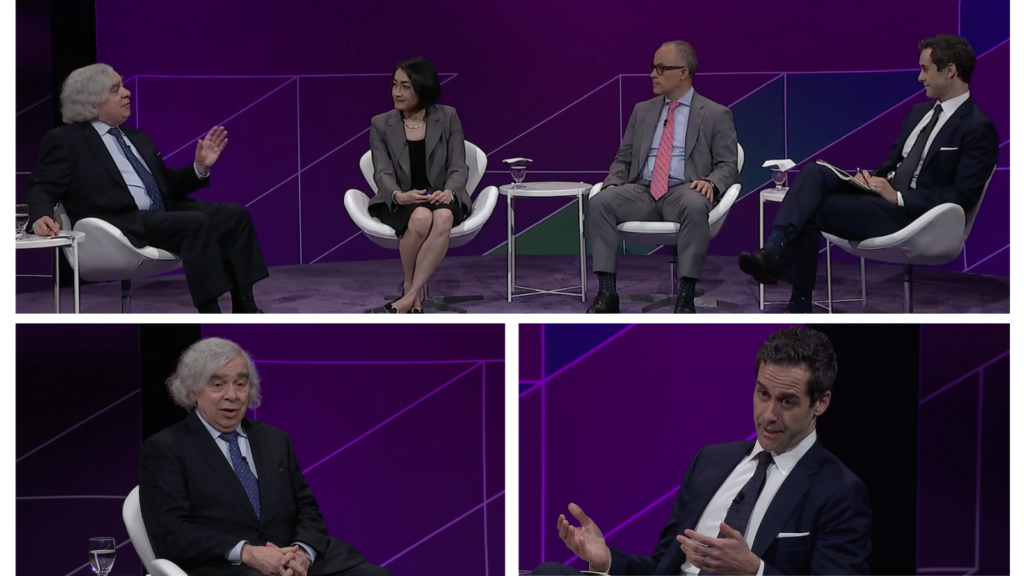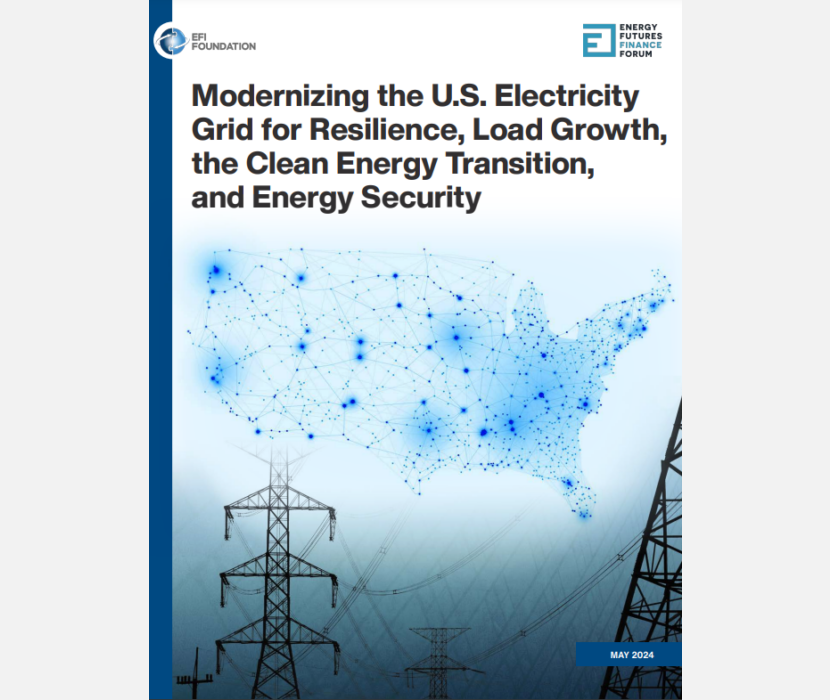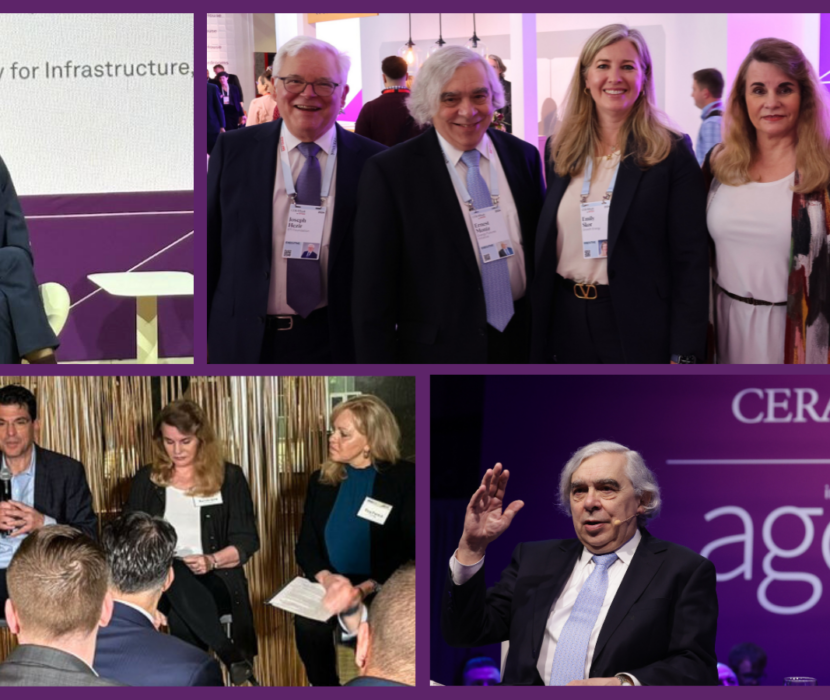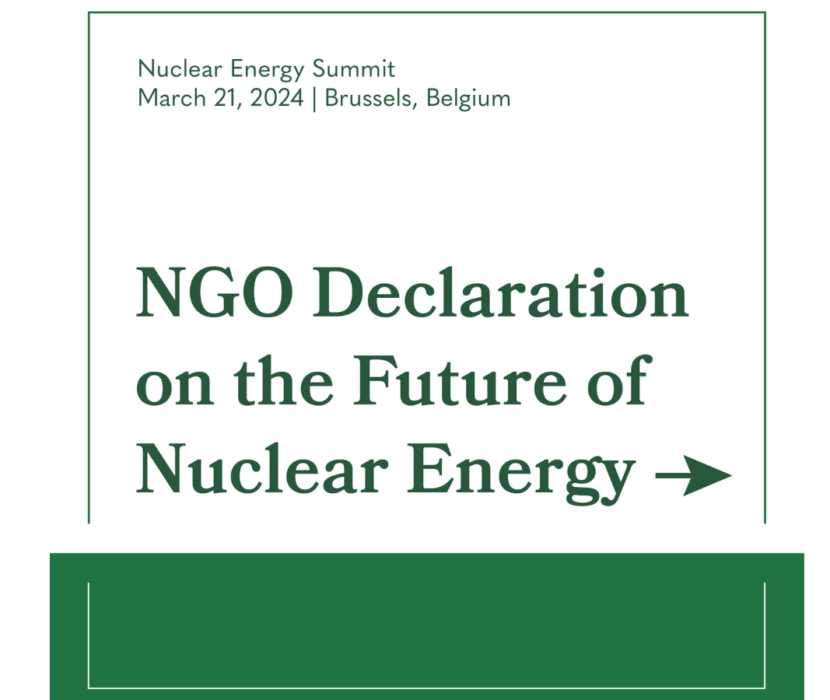
EFI Foundation CEO Ernest Moniz and EFI Foundation Senior Vice President Stephen Comello agreed that investors need to transition more private capital toward decarbonization efforts and clean energy projects to meet emissions targets during the March 7 panel discussion at CERAWeek 2023 in Houston, Texas. Moniz moderated the discussion titled “Addressing Barriers to Bankability of Clean Energy Products” with panelists Comello, Salim Samaha from Global Infrastructure Partners, and Martina Cheung from S&P Global.
Bankability is currently one of the biggest challenges to the clean energy transition. Investors and financial institutions use this term “bankable” to categorize investments with reliable returns, which they are more willing to finance. The challenge is to convince these institutions to invest in new clean energy projects and technology that do not yet have proven returns.
Moniz kicked off the session by stating that although the recent U.S. legislation has created a solid foundation for clean energy projects, there is still a challenge to persuade financial institutions that can provide additional capital.
“There remains a lot more to do to make enough clean energy projects investable and to have the investment committees say yes to going forward [with the projects],” Moniz said.
Comello agreed that funding the clean energy transition is one of the biggest barriers to meeting emissions targets. Recent U.S. legislation has increased funding opportunities for clean energy projects, but that total investment is still not enough to meet national or global emission goals.
“It’s important to get private capital involved, because we need incrementally about $5 trillion a year globally to get to net zero by 2050, and by some estimates, we’re about 30% of that,” Comello said. “That [gap is] not a small amount of money.”
Comello said that it is not only important to have fossil fuel companies fully decarbonize, but it is also important to entice investors that are not currently involved with the energy or climate sectors to invest in clean energy projects. He said the Inflation Reduction Act that was passed in 2022 is a great foundation from which to begin funding clean energy projects; more legislation like it could help draw in enough private capital funding to reach the necessary incremental $5 trillion globally and $300-400 billion in the United States on an annual basis.
“Investors who don’t even think about energy, who don’t even think about climate, they’re the ones that have to be incented to direct funds into this industry writ large, and they need a compelling reason to do so,” said Comello. “That is what’s needed to enable bankability, to create competition or to create the necessary need for funds.”
Another topic of conversation during the panel surrounded the challenge of funding carbon capture and sequestration (CCS) facilities. Carbon dioxide is cumulative in the atmosphere, and even if fossil fuel emissions halted today, the climate would continue to warm because of the remaining CO2 in the atmosphere. Moniz said that CCS provides ways to reduce carbon emissions; however, there are still technical issues to solve and is a challenge to present these projects to an investor.
Comello said process conditions for each CCS technology differ depending on the type of facility; for example, the emissions profile of a power plant that combusts coal differs from the emissions profile of a facility producing hydrogen or steel. A bankable CCS industry requires funding to commercialize solutions fit for these different use cases.
He also mentioned that investors will want to ensure the community surrounding potential CCS facilities will be supportive of the project. Pushback from communities to CCS facilities could tarnish the reputations of financial backers, thereby creating a financial risk. This is an ongoing discussion that still needs resolution.
“We know that CCS is controversial, and engaging with communities so that investors feel that it’s not a reputational risk in backing a technology like CCS is really important,” Comello said. “What does engagement look like? What is a community? How do you [engage communities] effectively? These are some of the elements that need to be considered to remove some of the barriers to CCS.”
Although there are many challenges associated with the bankability of clean energy, we are making progress. Moniz concluded the panel by asking the investor of the group from Global Infrastructure Partners, Salim Samaha, if he would be more inclined to invest in clean energy today than two years ago. Samaha replied with a definitive yes.
Read about other EFI Foundation involvement in CERAWeek:
- CERAWeek 2023: Moniz talks global collaboration
- CERAWeek 2023: Moniz says global energy transition requires improved supply chains
Watch the video: Addressing Barriers to Bankability of Clean Energy Products.
-Callyn Bloch, Communications Fellow
(Share this post with others.)




